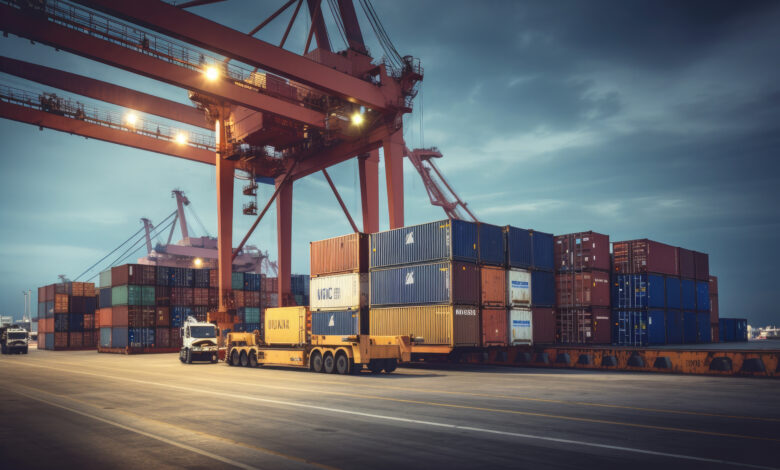Navigating the Challenges of Importing and Exporting Goods in South Africa

South Africa, as a key player in the global economy and the gateway to African markets, has a well-established import and export system. However, navigating this space can be complex, particularly for small and medium-sized enterprises (SMEs) looking to expand their operations beyond domestic borders. With the correct strategy and understanding of the potential challenges, businesses can tap into the immense opportunities that international trade offers. Below are some key challenges businesses face when importing and exporting goods in South Africa, along with insights on how to overcome them.
1. Regulatory Complexity
The South African trade environment is governed by various regulations that ensure compliance with international standards. These include customs duties, taxes (like VAT), permits, and licenses, as well as health and safety standards. For businesses importing or exporting goods, understanding these regulatory requirements is crucial to avoid delays or penalties.
Solution: Invest time in understanding the South African Revenue Service (SARS) regulations and the International Trade Administration Commission of South Africa (ITAC) guidelines. Partnering with customs brokers or trade consultants who are well-versed in the local and international regulations can help streamline the process.
2. Currency Volatility
The South African Rand (ZAR) is prone to fluctuations, which can greatly affect the cost of imports and the profitability of exports. Exchange rate volatility introduces risk into trade transactions, as currency swings can turn a profitable deal into a loss-making one.
Solution: Businesses can protect themselves by employing hedging strategies such as forward contracts or currency options. These tools help lock in exchange rates, providing more predictability in costs and revenues.
3. Logistical Challenges
South Africa has extensive trade infrastructure, including ports, airports, and highways. However, logistical challenges such as port congestion, transport strikes, and inefficient supply chain management can hinder the smooth movement of goods.
Solution: Partnering with reliable logistics providers and planning shipments well in advance can mitigate some of these challenges. Investing in technology for real-time tracking of shipments and having contingency plans for delays can also minimize disruptions.
4. Customs Delays and Tariffs
Customs clearance can be a time-consuming process, often leading to delays in shipping timelines. Additionally, importers face various tariffs, depending on the type of goods being imported. Similarly, exporters might encounter tariffs imposed by the destination countries.
Solution: Understanding the Harmonized System (HS) codes and relevant duties that apply to your products can reduce uncertainty. Engaging customs agents or freight forwarders familiar with the tariff structures can help expedite the customs process.
5. Trade Barriers and Quotas
South Africa is part of several international trade agreements, but businesses may still encounter non-tariff barriers like quotas, import bans, or restrictions on certain goods. These barriers can limit market access or complicate the process of exporting certain products.
Solution: Staying updated on international trade agreements, particularly those that affect South Africa (such as the African Continental Free Trade Area – AfCFTA), can help businesses anticipate and adapt to these challenges. Building strong relationships with international trade partners can also open doors for smoother cross-border trade.
6. High Shipping Costs
Shipping goods internationally can be expensive, especially for smaller businesses without the advantage of bulk shipping rates. The cost of transportation, fuel surcharges, and insurance can significantly affect profit margins.
Solution: Negotiating favorable shipping contracts or opting for groupage services, where goods are shipped with other consignments to share costs, can help lower shipping expenses. Leveraging regional trade agreements that provide for preferential shipping rates is also a useful tactic.
7. Product Certification and Standards
Different countries have different standards for product safety, quality, and packaging. Exporting products that don’t meet the destination country’s standards can lead to rejection of shipments or penalties.
Solution: Businesses should ensure their products are compliant with both South African and international standards. For export markets, researching the destination country’s regulatory framework or engaging with product testing and certification agencies is vital.
8. Market Research and Entry Strategies
Exporting goods to a foreign market without adequate knowledge of the local market dynamics can result in business failure. Misunderstanding consumer preferences, market size, or the competitive landscape can limit success.
Solution: Conduct comprehensive market research before entering new markets. This can include studying trade reports, visiting trade fairs, and working with local partners who understand the market. Utilizing government resources such as the Department of Trade, Industry and Competition (DTIC) or export promotion agencies can also provide valuable insights.
9. Political and Economic Instability
South Africa is strategically located to trade with multiple regions, including Europe, Asia, and the rest of Africa. However, political and economic instability, both locally and in trading partner countries, can disrupt trade flows and lead to increased risk in supply chains.
Solution: Diversifying trade routes, markets, and suppliers can reduce the impact of political instability. Engaging in scenario planning and risk management strategies helps businesses prepare for disruptions.
10. Environmental and Ethical Considerations
More than ever, consumers and international buyers are demanding environmentally sustainable and ethically produced goods. Businesses failing to meet these demands risk losing out on lucrative international markets.
Solution: Ensure compliance with environmental standards by adopting sustainable practices in production and packaging. Ethical certifications, such as Fair Trade or ISO environmental standards, can make products more attractive to global buyers.
While importing and exporting goods in South Africa present challenges, they also offer significant growth opportunities for businesses that are prepared. By understanding and proactively addressing these hurdles—whether regulatory, logistical, or economic—companies can capitalize on the benefits of international trade and expand their market reach. With the right knowledge, partnerships, and risk management strategies, navigating South Africa’s trade landscape can become a smooth and rewarding process.




